Dozens of skateboarders hang around Wallace Emerson skate park in Toronto’s west end on an unusually hot Saturday night in May. Most wear name tags with their pronouns scrawled in marker. A DJ is set up in the corner, upbeat tunes mingling with the unmistakable sound of rubber wheels on concrete and metal trucks on coping. Some attempt ollies on the grass, others skate the kicker (a short flat ramp) or courageously try to drop in for the first time on the mini ramp.
“Attention,” the MC begins, “this is now a fucking gay space!” This is Queer Skate Toronto’s first monthly Queer Skate Jam of 2022.
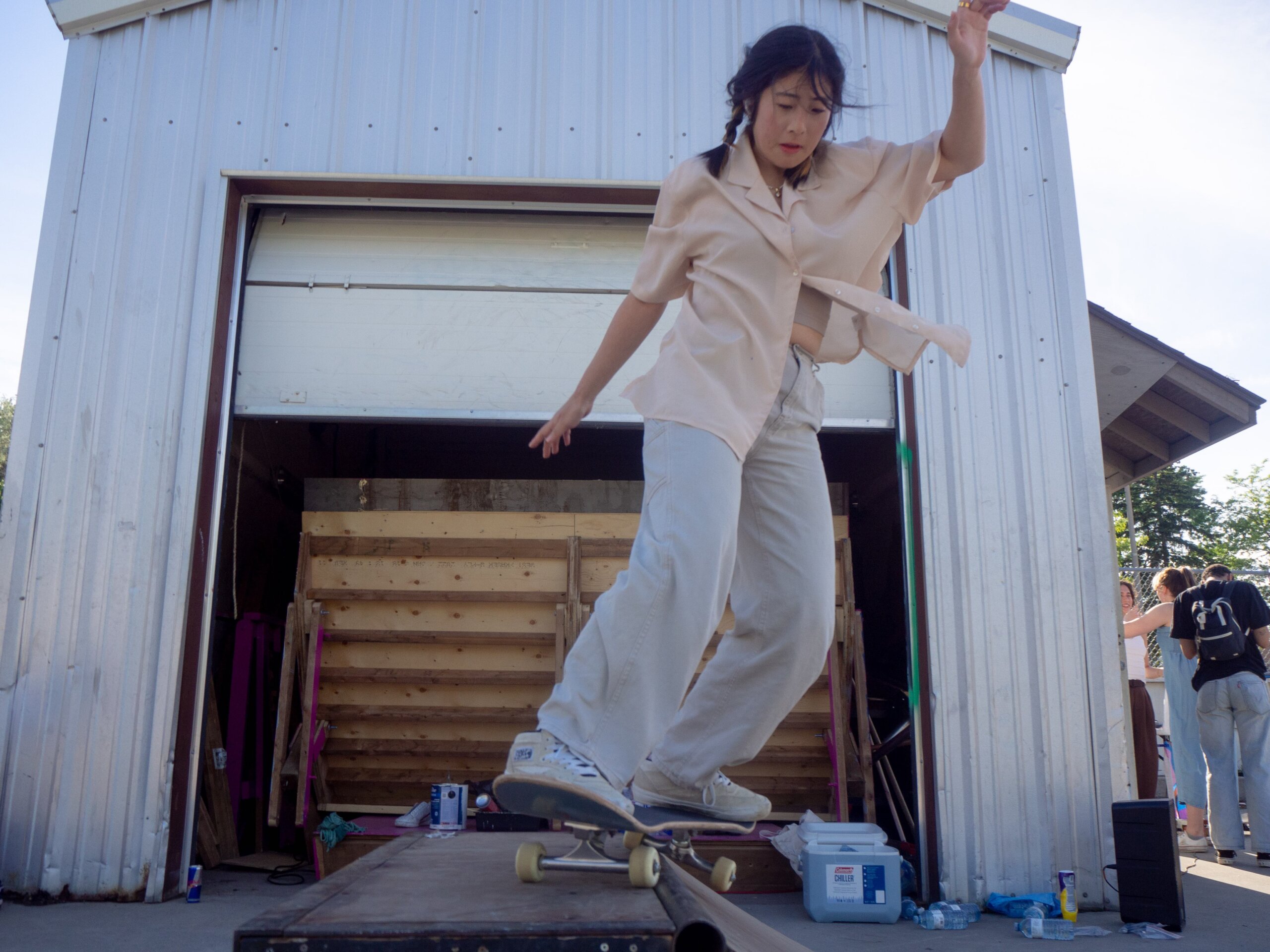
Credit: Jes Mason
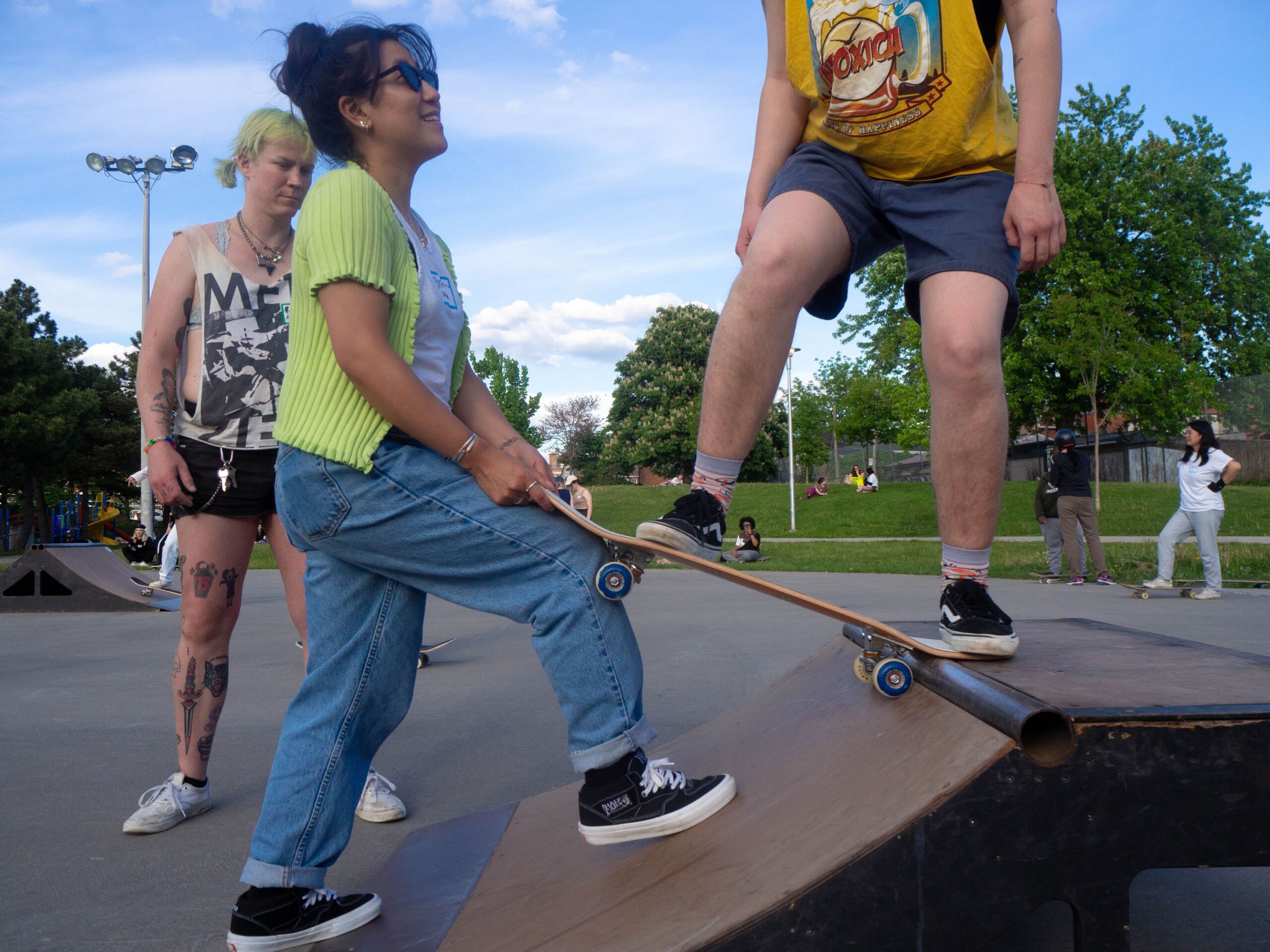
Credit: Jes Mason
Founded by Chantal Garcia, Queer Skate Toronto is a collective of queer skaters taking Toronto skate parks by storm. Garcia started skateboarding as a kid, but after picking it up again at 24, she says it was difficult to find people to skate with. “I kind of scoured the internet looking for any women meetups,” she says. She found skate parks could be intimidating and queer skate friends could be hard to find. “I didn’t end up going because my people weren’t there.”
Eventually, Garcia did find her people. By 2020, she felt connected enough to the Toronto skate scene that she could help others do the same. “At that point, I just felt that I had the resources and the social standing within the skate community to be able to take space for people who aren’t quite comfortable taking space.” In March 2020, she organized the first Queer Skate Jam. Six people showed up—and Garcia was “stoked.”
It wasn’t until a year ago, however, that the skate jams really took off. In May 2021, Garcia hosted an outdoor meetup at a local marketplace. She showed up around 5 p.m. with her own rail and high hopes—she wanted 20 people to show. Instead, she got 40. As the sun set, people started dancing on the mini ramp and blasting music. It was the first bona fide jam.
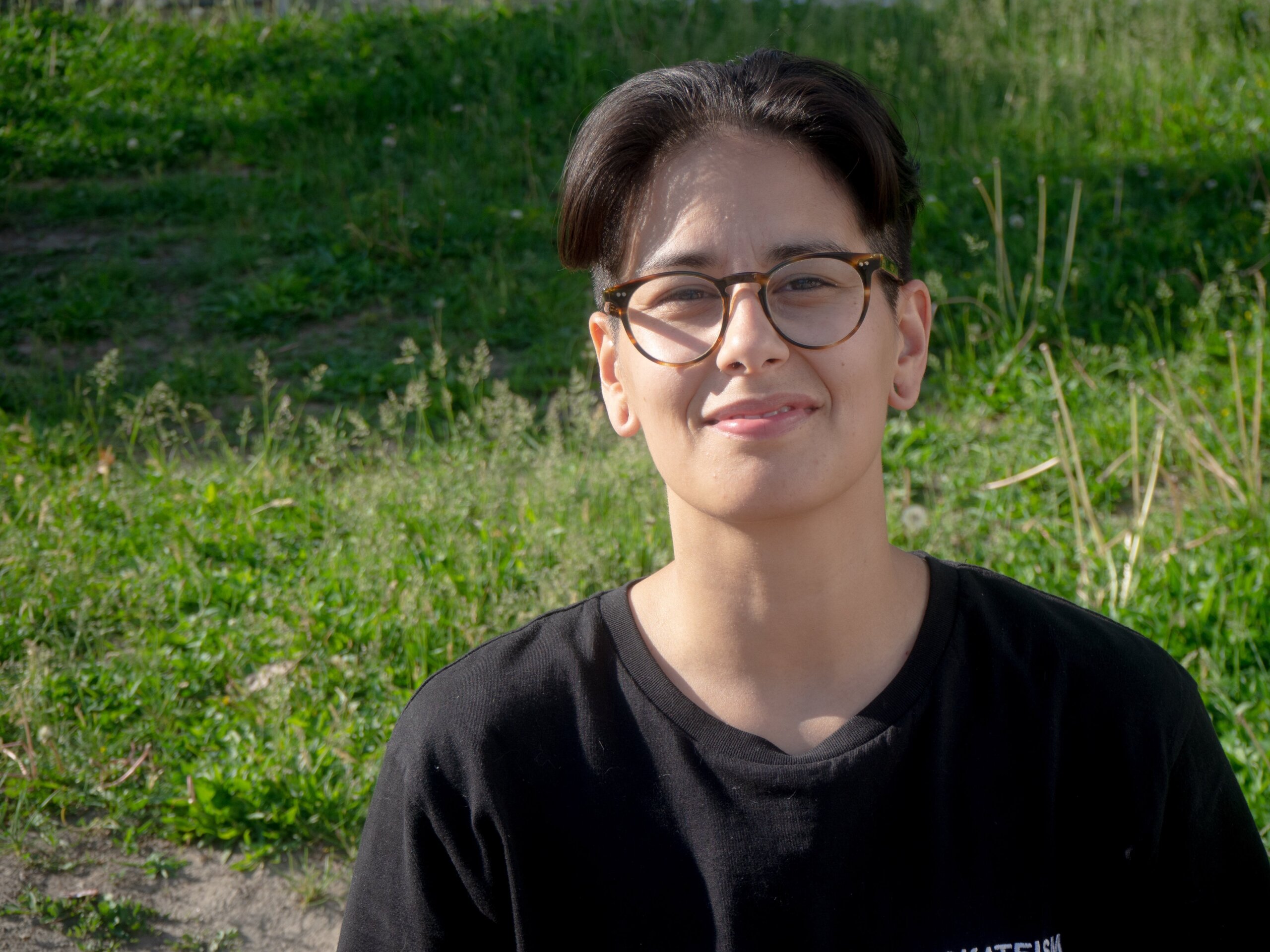
Credit: Jes Mason
Queer Skate Toronto is one of many queer skate organizations that have popped up around the world in the past several years. According to a study by Bethany Geckle and Sally Shaw, “the current generation of young queer skateboarders is tapping into the queer potential of skateboarding and mobilizing it more than ever before.” Queer skateboarders like Garcia are committed to carving out space for themselves in a skate culture that, despite its roots in broader counterculture, has traditionally been hostile toward queer and trans people. And in the face of a renaissance of vitriolic old-school homophobia and transphobia, communities like Queer Skate Toronto are essential as both resistance and salvation.
Krista Grey, an instructor with Queer Skate Toronto, started skateboarding over 20 years ago. She spent much of this Queer Skate Jam encouraging brand new skaters as they tentatively rolled around the park on loaner boards, offering a hand or two as needed. When Grey started skateboarding, she says nobody ever offered her that support. “I just had to keep going and going, slamming into the ground to figure it out.”

Credit: Jes Mason
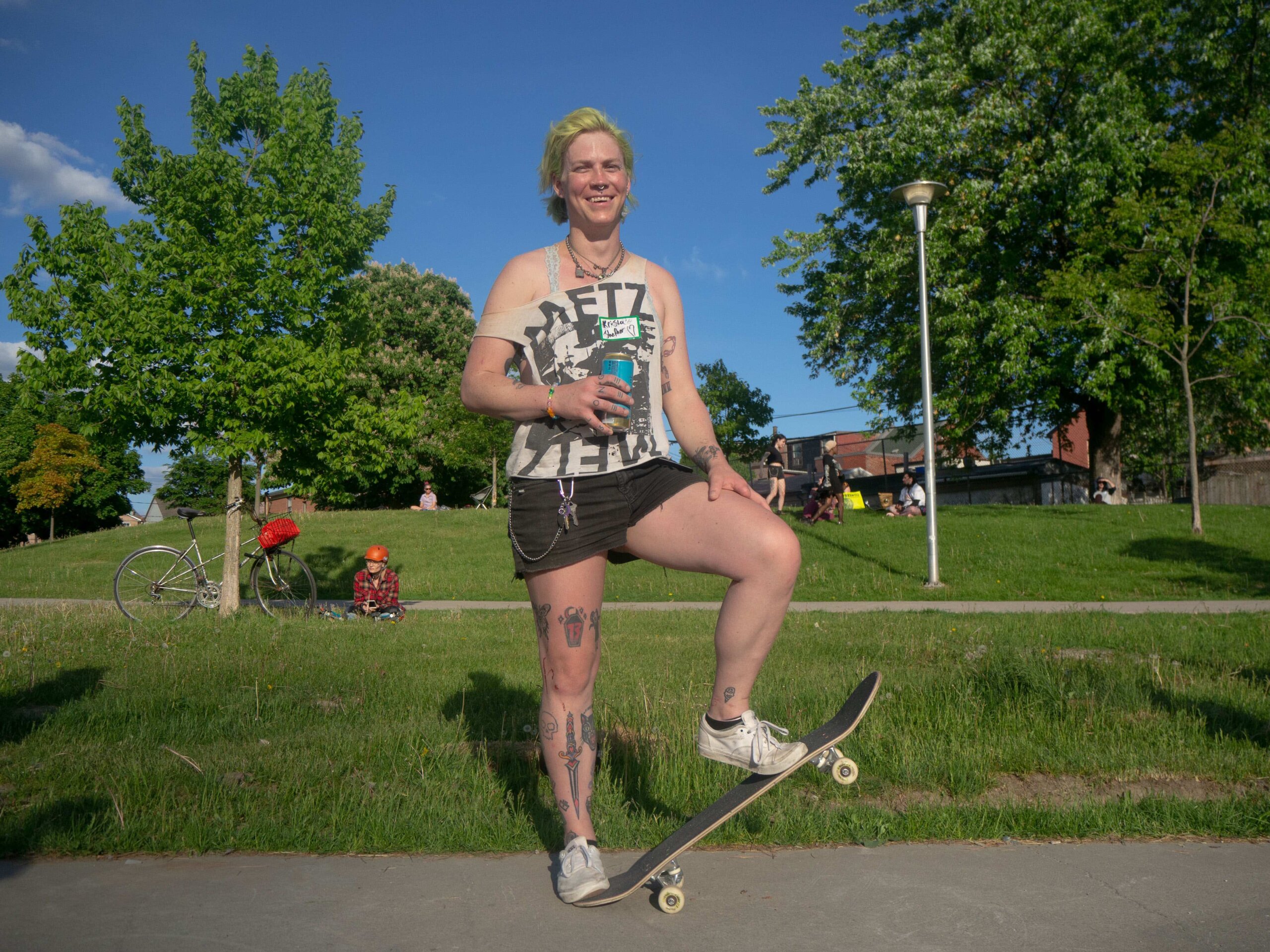
Credit: Jes Mason
At the time, she says skate culture was awful for queer people. “I didn’t know anybody that was queer. I didn’t know what queer was, other than what’s what you call somebody when you didn’t like them.”
Grey says skate culture has changed dramatically in recent years. Garcia agrees, and she credits the emergence of expressly queer skate companies like Unity Skateboarding, THERE and Glue Skateboards as proof that queer and trans folks are gaining visibility in the industry. Glue co-founder Leo Baker, Unity and THERE, among others, have all been involved in organizing inclusive skate sessions much like Queer Skate Jams.
Garcia says she’s also seeing increased support for queer and trans skateboarders from the mainstream skate industry. For Queer Skate Toronto, this comes in the form of merch donations, giveaway boards from local skate shops and a small amount of funding from Vans. But queer skateboarders—and especially trans skateboarders—still face barriers. Garcia notes a lack of skate programming for queer teenagers, as well as the financial inaccessibility of indoor skate parks. Further, transphobia still has a definite foothold in skate culture.
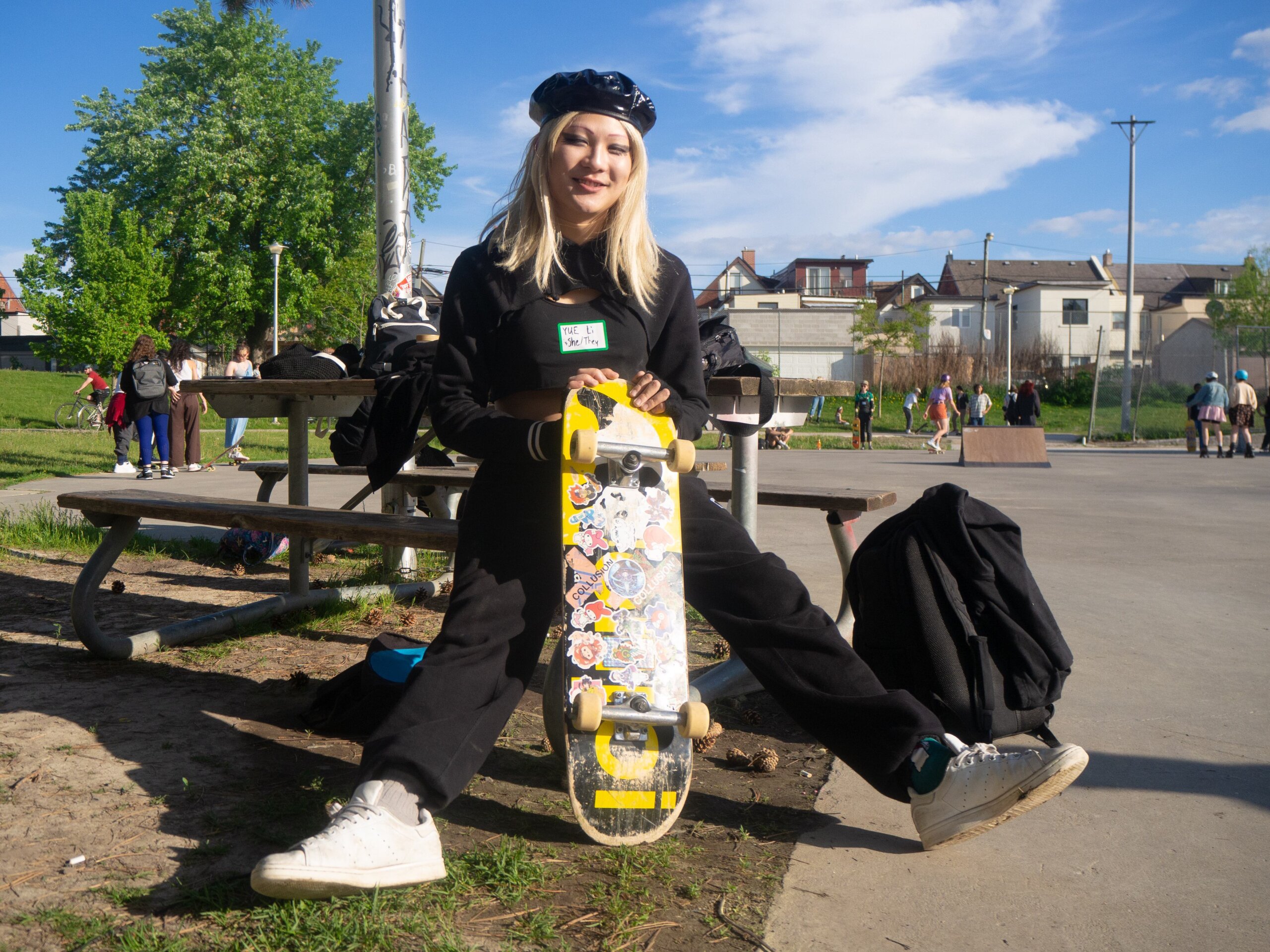
Credit: Jes Mason
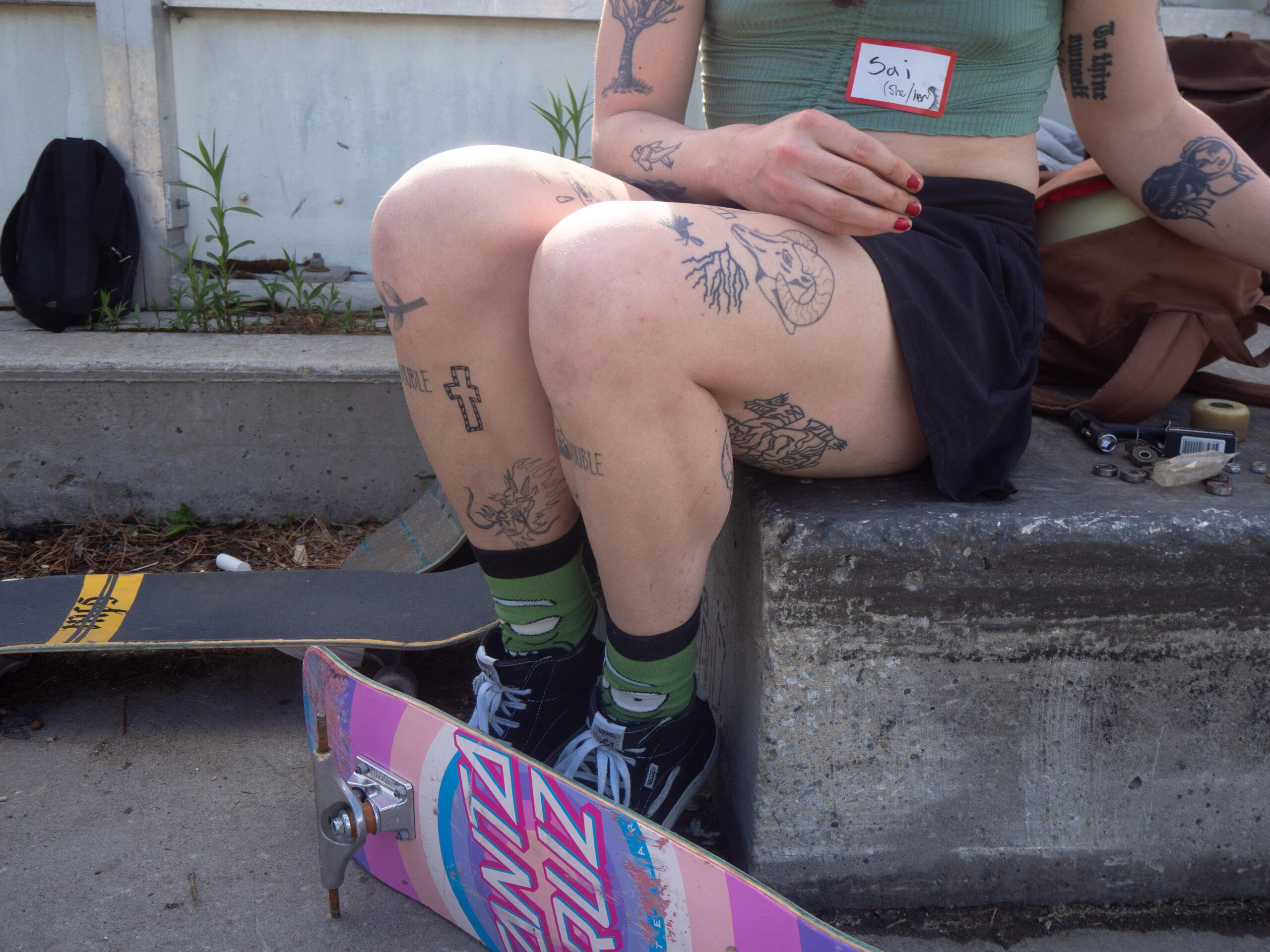
Credit: Jes Mason
In May, skateboarder Taylor May Silverman went viral for an anti-trans diatribe about a trans competitor. In the 2020 Olympics, skateboarder Alana Smith—the first openly non-binary athlete to compete for the United States—was repeatedly misgendered by commentators. Legendary skater Leo Baker resigned from the U.S. women’s Olympic team altogether in 2020 when he came out as trans. They said that prior to resigning, they couldn’t even consider starting testosterone because of anti-doping regulations. “The compromise was not worth it. I couldn’t keep putting myself on hold,” he wrote in an article for TIME.

Credit: Jes Mason

Credit: Jes Mason
According to Grey, transphobia in skate parks still exists in more subtle ways. Toronto skate parks—especially indoor parks—tend to be dominated by cis men, she says. “They don’t really give the space. So we just have to take it. And that’s not an easy thing to do.”
She says her first Queer Skate Jam was refreshing. “When I see another trans girl skateboarding beside me, it’s like, ‘Wow, this is so awesome.’ Because I’ve never had that before. I never saw another trans girl on a skateboard other than in a video.”
Garcia fondly recalls a parent reaching out to her with a similar story—their eight-year-old non-binary kid had made their first fellow non-binary friend at a skate jam. She says it was really nice to know the collective could foster friendships like that, especially for people who might otherwise be isolated from other queer people. Looking to the future, Garcia hopes the collective can keep doing just that.
“It’s just going to continue to be a happy and inclusive and safe space for skaters,” she says.
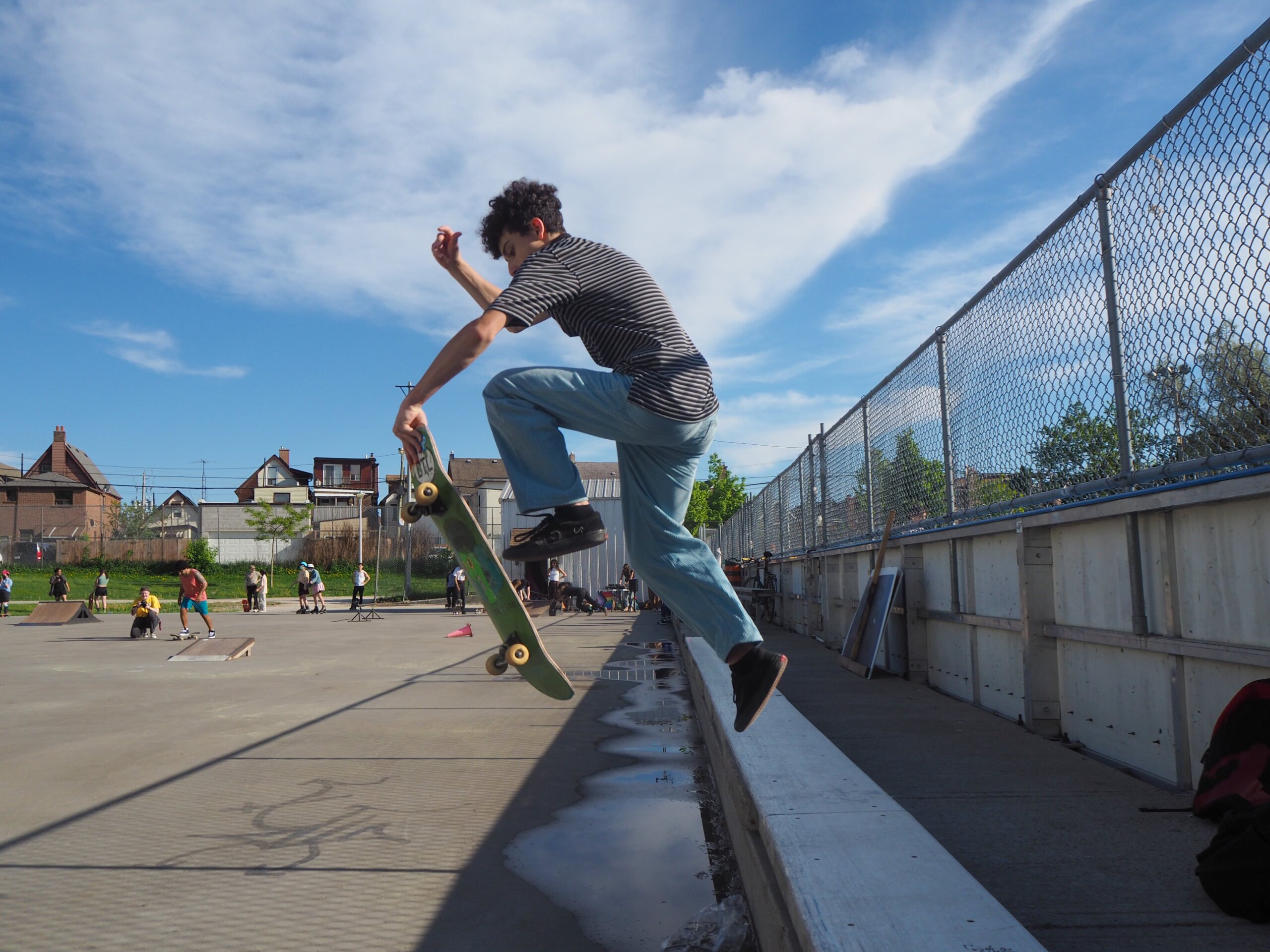

 Why you can trust Xtra
Why you can trust Xtra


